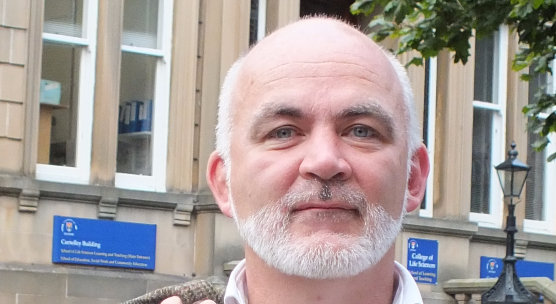How medicine and other drugs changed the face of Asia
Published On Mon 25 May 2015 by Grant Hill

The ways in which drugs, medical, spiritual, psychoactive and recreational, impacted on the development of Asia will be explored at a University of Dundee conference this week.
‘Monitoring Markets: Medical Substances in South Asia’ takes place at Dundee Contemporary Arts on Wednesday, 27th and Thursday, 28th May. An international line-up of delegates will come together for the conference, which takes place as part of the University’s ‘Two Months of Global History’ series.
Themes include histories of individual drugs and opiates, their social uses and discontents, their political impact on manufacture and within the nationalist movement, government control and taxation, adulteration in food and drugs, consumption patterns of addictive and non-addictive substances as well as temperance movements.
James Livesey, Professor of Global History and Acting Dean of School of Humanities at the University, said, “At the turn of the nineteenth century, European colonies in Asia were awash with medicines, tinctures, tonics, narcotics and therapeutic substances of every kind, exported from Britain, Germany, USA and Japan.
“There was moreover a brisk trade within of drugs, alcohol-based or otherwise, and narcotics of every kind within the region, including a vast number of indigenous drugs. Purveyors of Indigenous and western therapies and substances marketed their drugs, medicated wines and brandies, and patent medicines of every description to the growing numbers of the urban indigenous consuming public.
“This market was not just a medical market, but one of alcohol, opiates, narcotics, as well as of curative substances. Recently, the historiography of colonial India has engaged with the re-invention of indigenous drugs, the control of opiates, the social history of advertising and the trajectories of government control over alcohol and opiates.
“We are delighted to be welcoming esteemed colleagues from around the world to the University, and this conference will bring together historians of South Asia who have worked on substances and their social trajectories.”
The conference will be preceded by a lecture on ‘Global History and the Machine Age’ by Professor David Arnold, one of the most prolific historians of colonial medicine and modern South Asia. The event, hosted by the University’s Arts & Humanities Research Institute (AHRI) and Scottish Centre for Global History, takes place at Room T9 in the Tower Building from 6.30-8pm on Tuesday, 26th May.
Debates, workshops, network events and conferences on global history are taking place at the University throughout May and June as the Scottish Centre for Global History welcomes some of the discipline’s most prominent practitioners. They will explain their vision of the field, host conferences on cutting-edge research and hold training workshops for new doctoral researchers. Many of the events are open to the public and all welcome participants from across Scotland and the world.
More information is available from http://globalhistory.org.uk/.
For media enquiries contact:
Grant Hill
Press Officer
University of Dundee
Nethergate, Dundee, DD1 4HN
TEL: 01382 384768
E-MAIL: g.hill@dundee.ac.uk
MOBILE: 07854 953277